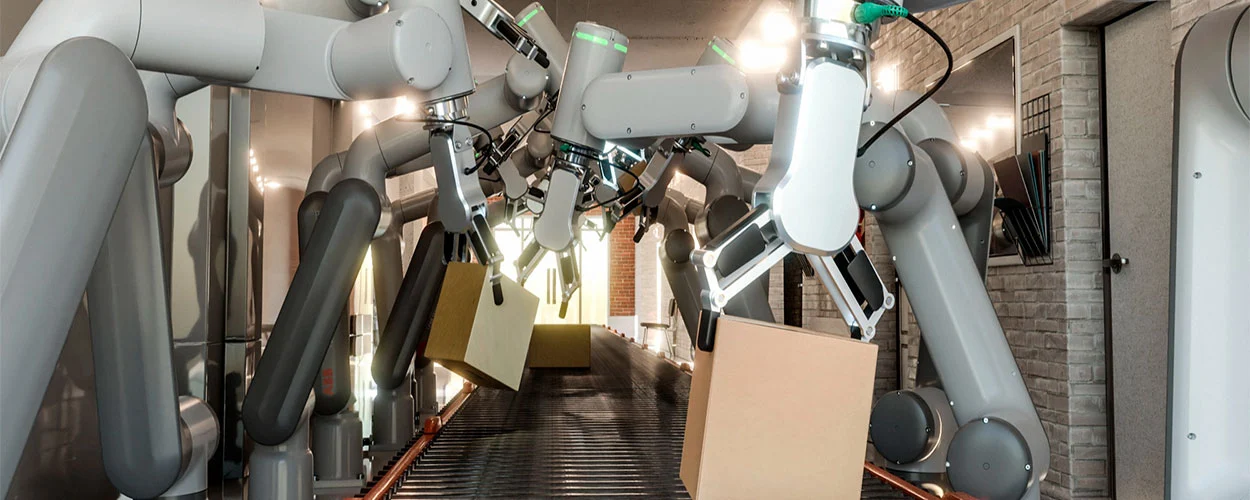Client
The client is a well-established manufacturing company that specializes in producing high-quality components for the automotive industry. With decades of experience and a strong reputation for manufacturing high-quality products, they have attracted a broad customer base. However, they were facing pressing challenges for the past few years that were affecting their efficiency, quality control, and overall competitiveness in the market.
The Challenge
The manufacturing company had long relied on manual processes and outdated systems to manage their production lines, resulting in inefficiencies, errors, and challenges in maintaining product quality and consistency. Meeting growing customer demands had become a struggle, causing production delays and missed deadlines. These issues not only affected operational efficiency but also profitability and tarnished the company’s reputation for reliability.
Recognizing the need for a digital solution, the company explored various avenues to enhance manufacturing processes. However, these efforts did not yield the desired results. To address these challenges and embrace digital transformation, they sought the expertise of Genesis NGN.
Research
To fully grasp the manufacturing company’s unique needs and challenges, Genesis NGN sent a team of experts. This team conducted thorough research, collaborating closely with the company’s engineers, supervisors, and production staff. They conducted on-site process audits and kept themselves updated with the latest advancements in manufacturing technology.
The research uncovered a crucial need for a digital solution that could streamline production, minimize errors, maintain consistent product quality, and meet the rising demands of customers.
Solution
To handle the manufacturing company’s challenges head-on, the Genesis NGN team proposed a comprehensive digital transformation strategy, centering on the implementation of cutting-edge manufacturing automation technologies and a digital production management system.
The team integrated advanced manufacturing robots and automated assembly lines equipped with state-of-the-art sensors into the company’s production processes. These sensors enable seamless data sharing, significantly improving production efficiency and capabilities. These robots are also equipped with sophisticated algorithms and sensors, allowing for precise and efficient tasks like assembly, quality control, and packaging.
However, the most important part of our solution was the development of a centralized production management system and it served as the control center of the manufacturing process. The system is equipped with advanced machine learning algorithms, and robust data analytics capabilities, and can seamlessly communicate with robots and other machines through sensors and IoT technology. Imagine it as the control tower at an airport, overseeing and coordinating all activities. Here’s how it worked:
Benefits
The implementation of the centralized production management system, robots, and automation brought significant benefits to our client’s manufacturing operation.
- Enhanced Efficiency: The introduction of automated production lines, coupled with the centralized production management system, streamlined manufacturing processes, significantly increasing efficiency and reducing production errors.
- Consistent Product Quality: Automation, guided by data from the centralized system, ensured that each product consistently met high-quality standards, reducing variability and enhancing overall product consistency.
- Meeting Customer Demands: With real-time insights from the centralized system, the manufacturing company could promptly respond to increasing customer demands, ensuring on-time deliveries and bolstering customer satisfaction.
- Cost Savings: The integrated system, along with automation, resulted in reduced manual labor requirements, improved resource utilization, and lower error rates, translating into substantial cost savings.
- Competitive Edge: Embracing digital transformation, including the centralized production management system, positioned the manufacturing company ahead in the competitive automotive component market. It allowed them to deliver products more efficiently and reliably to their customers, further strengthening their competitive edge.

